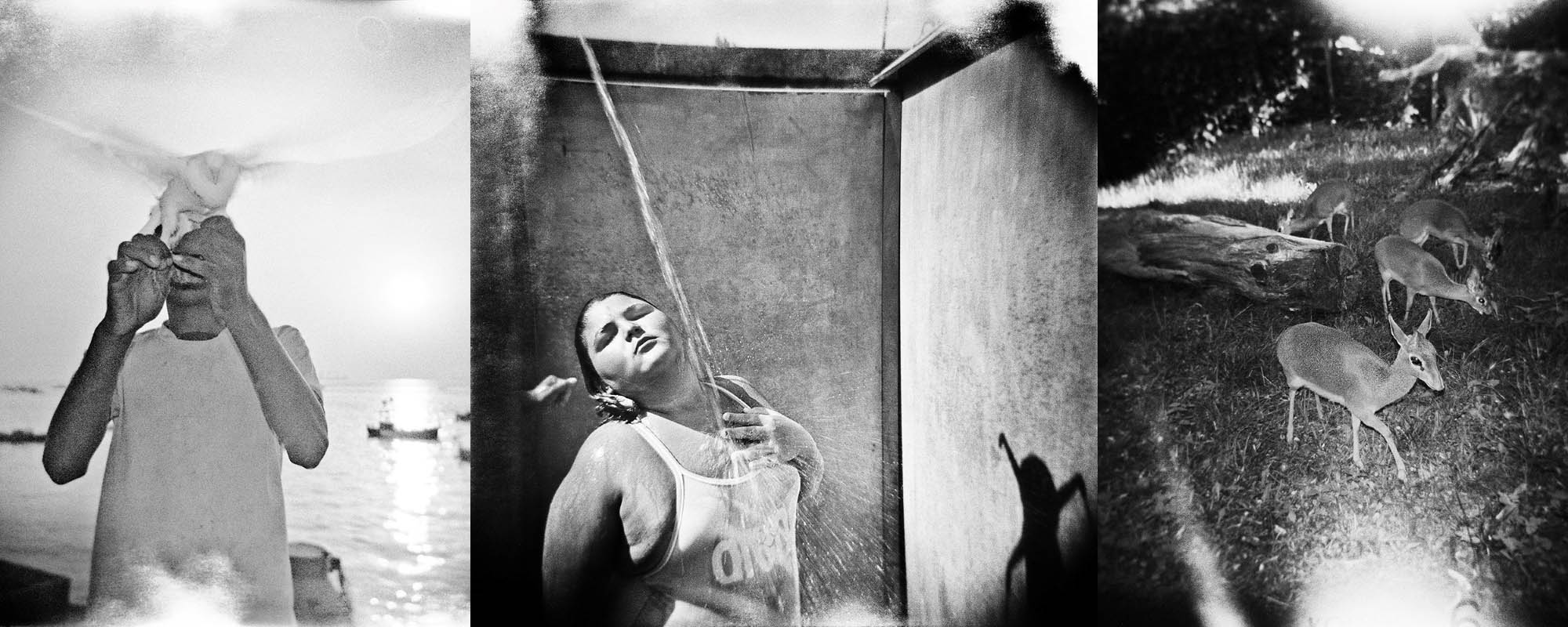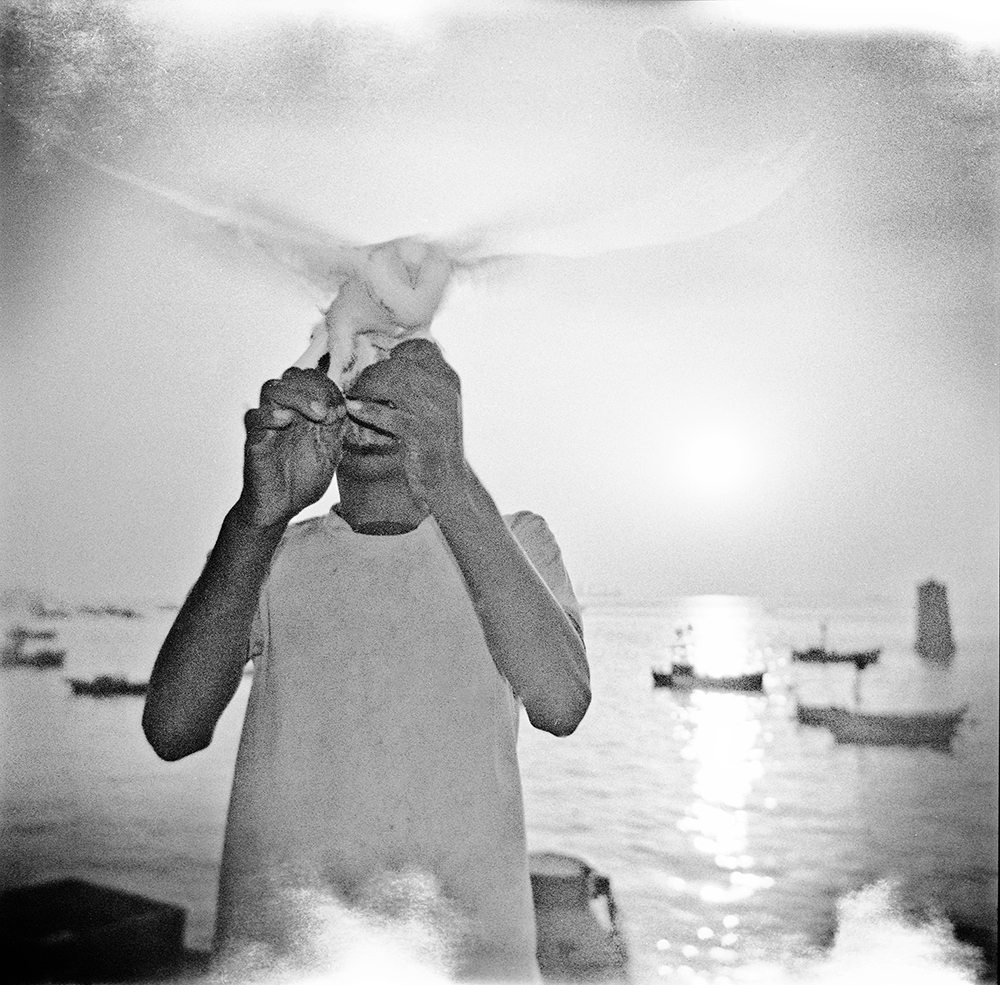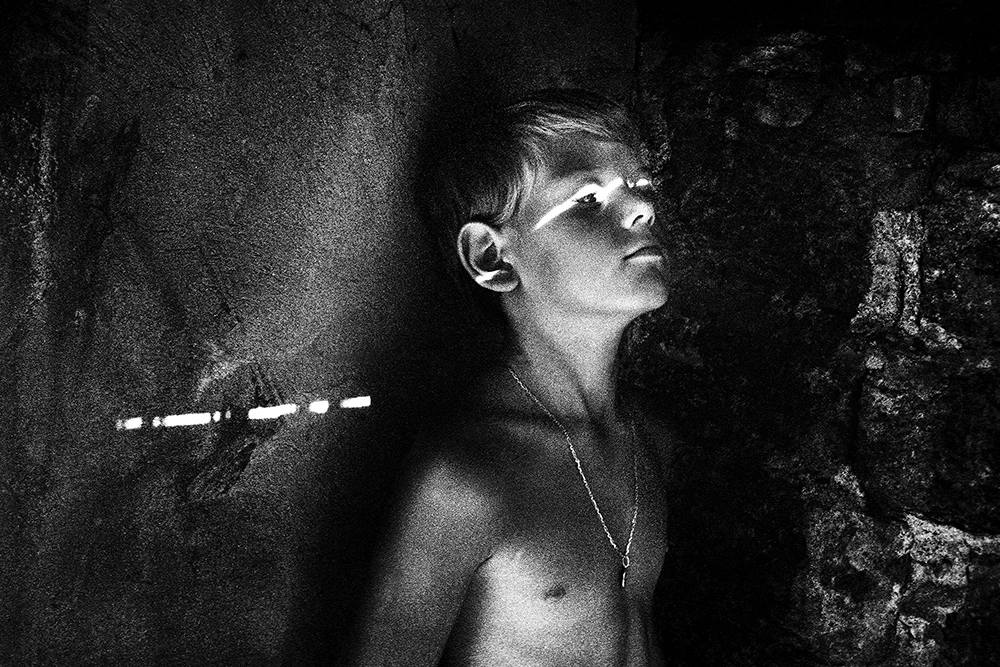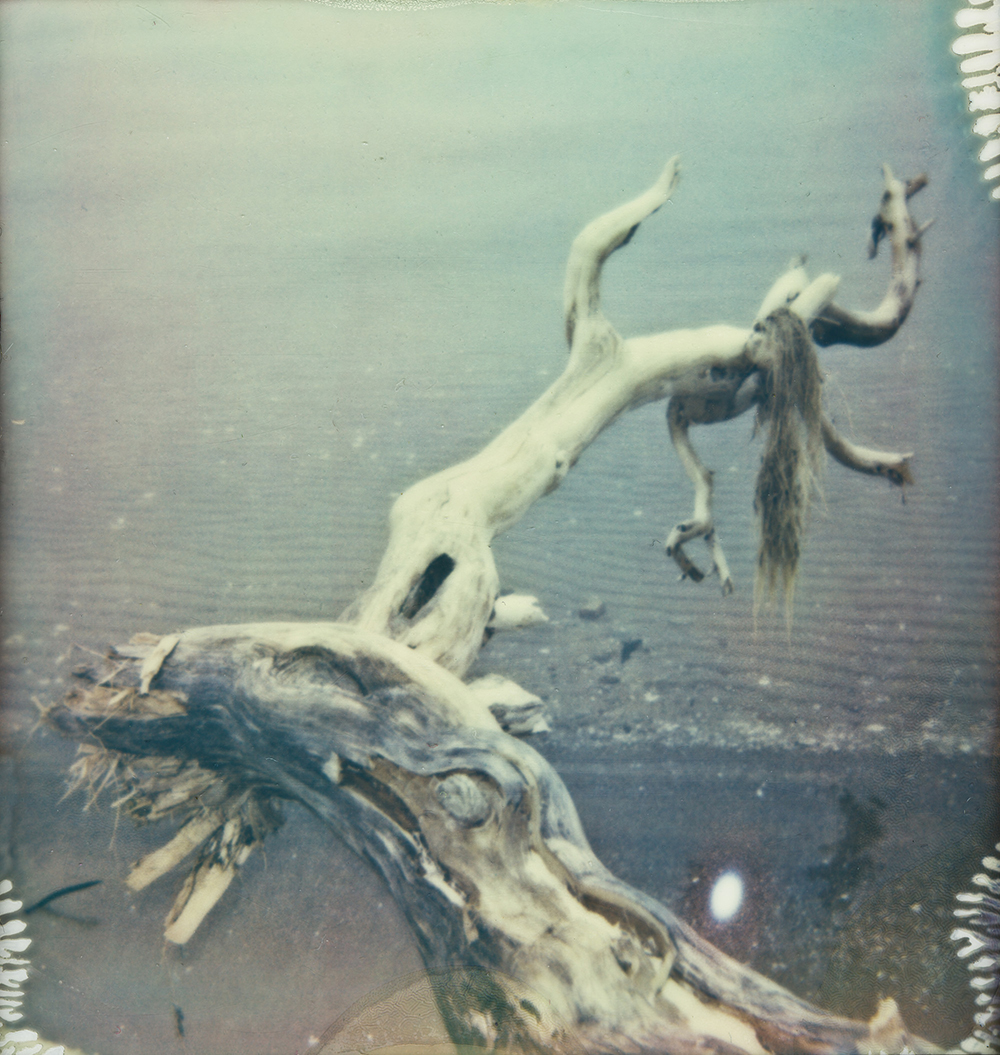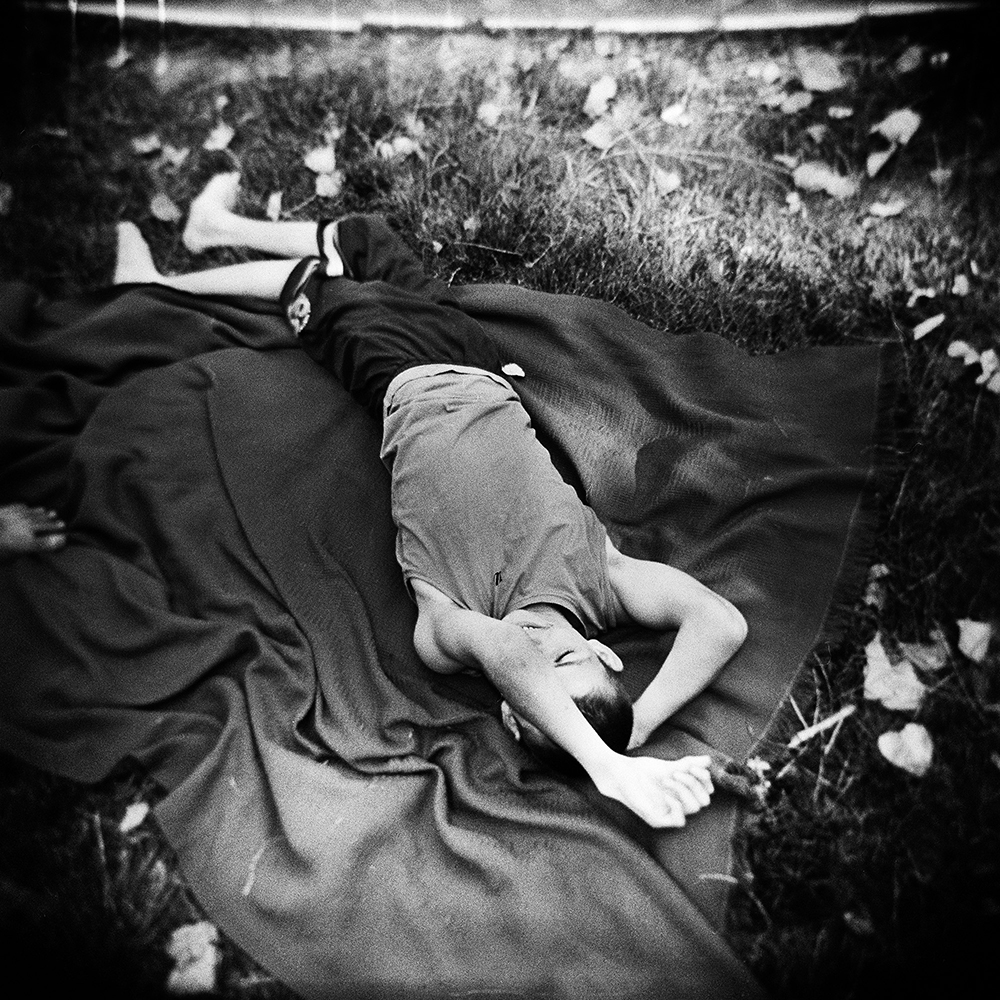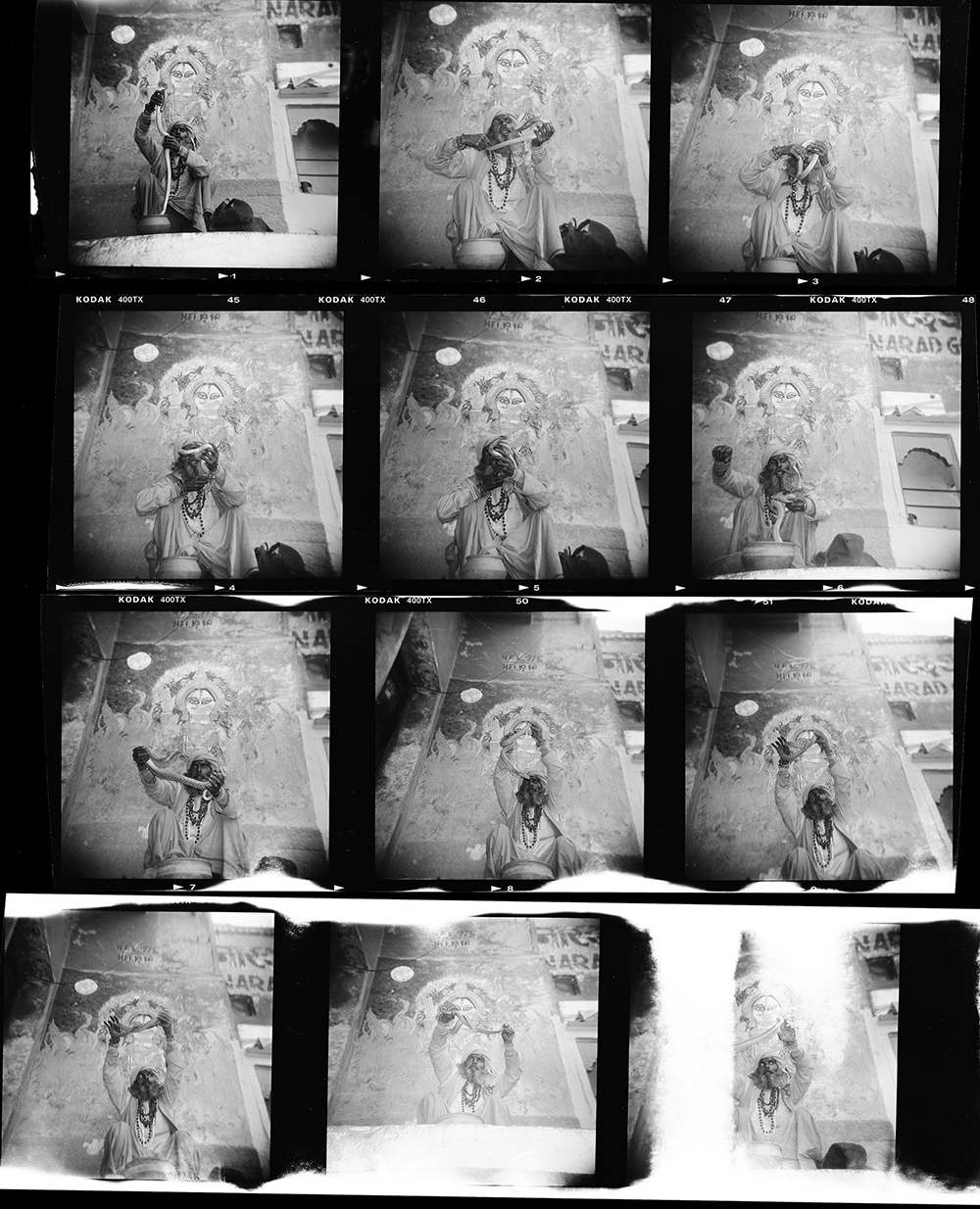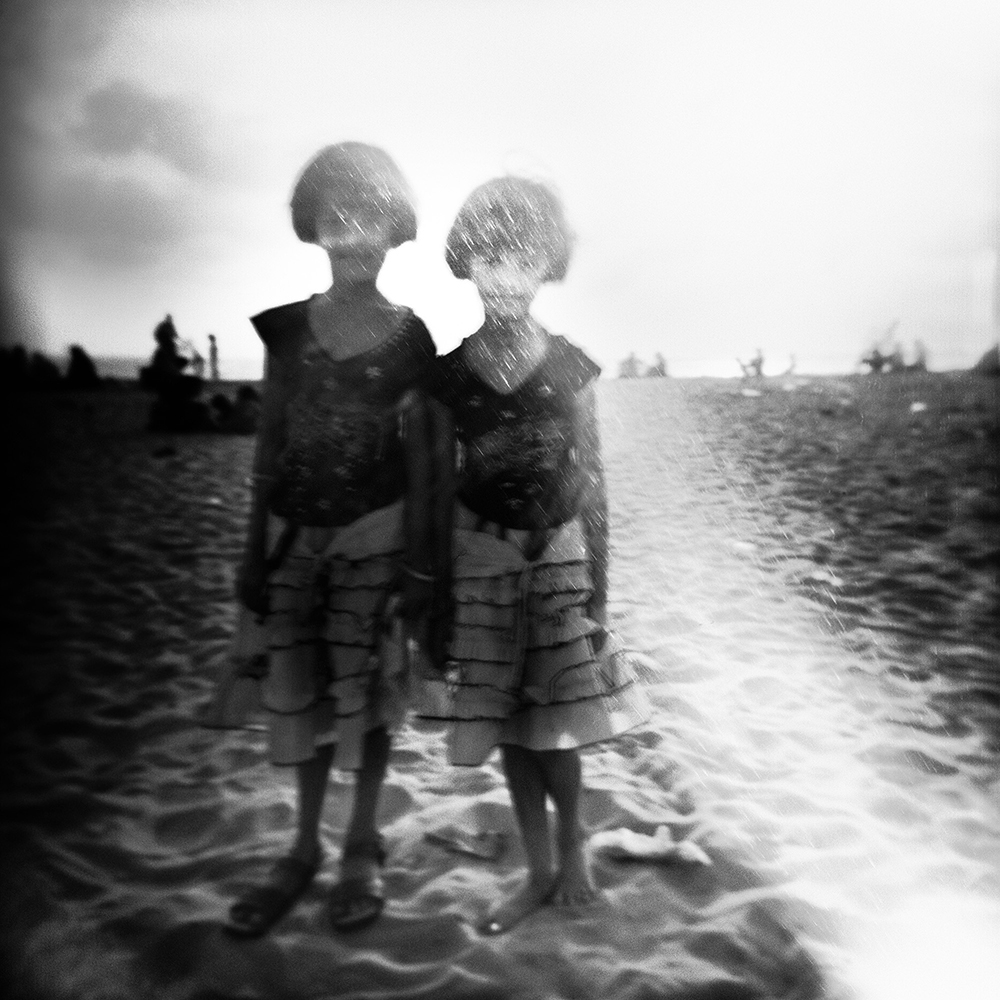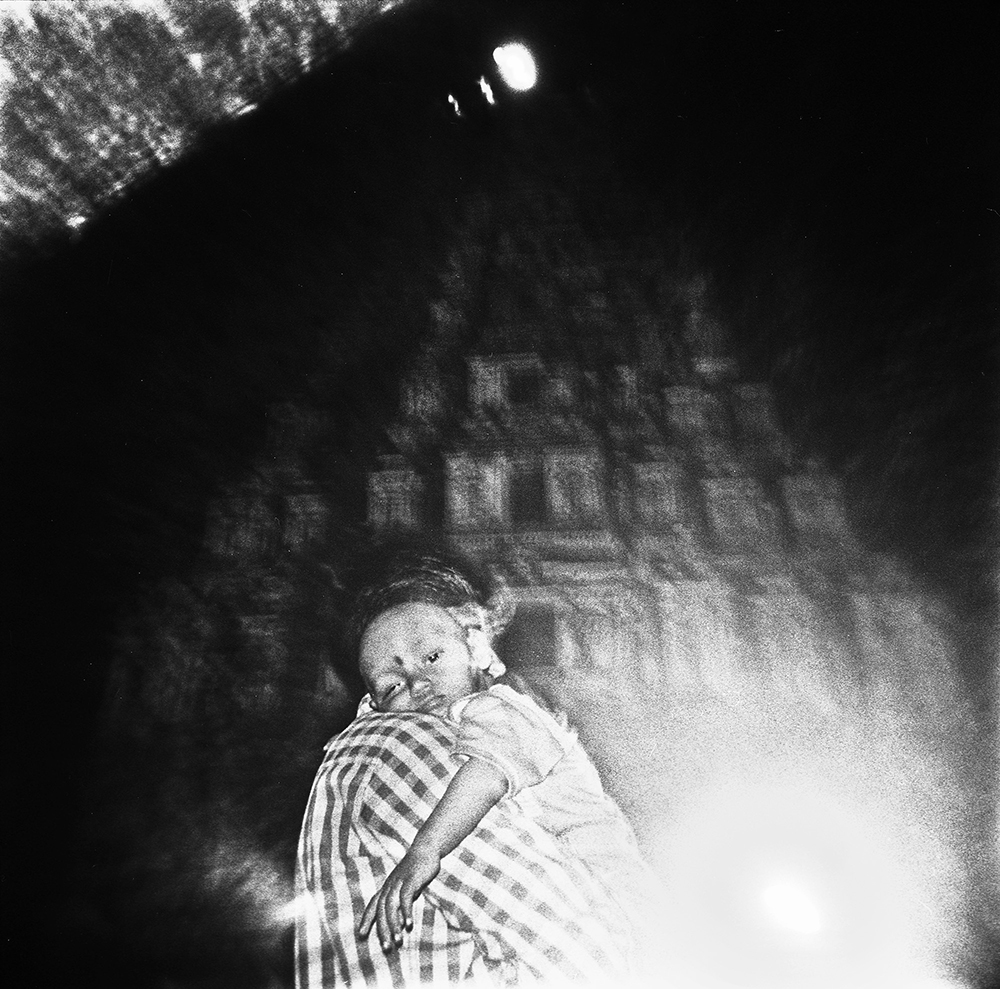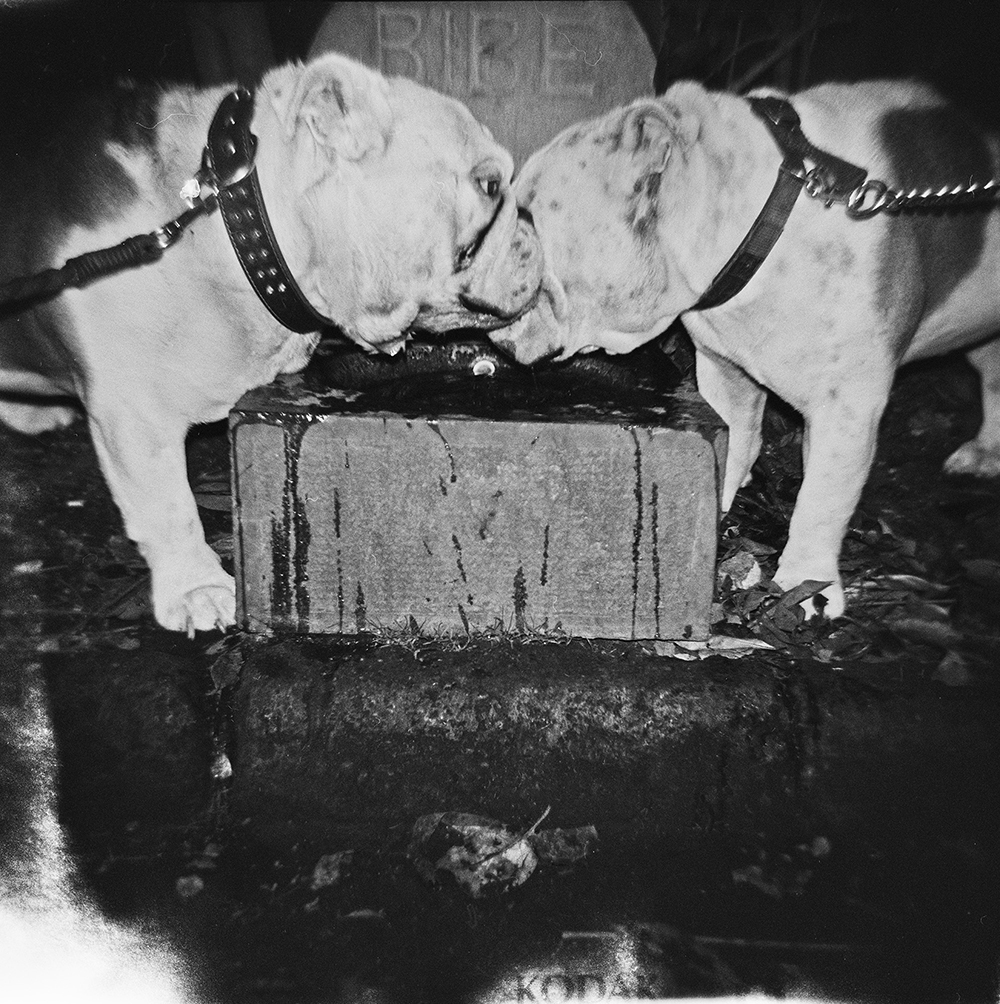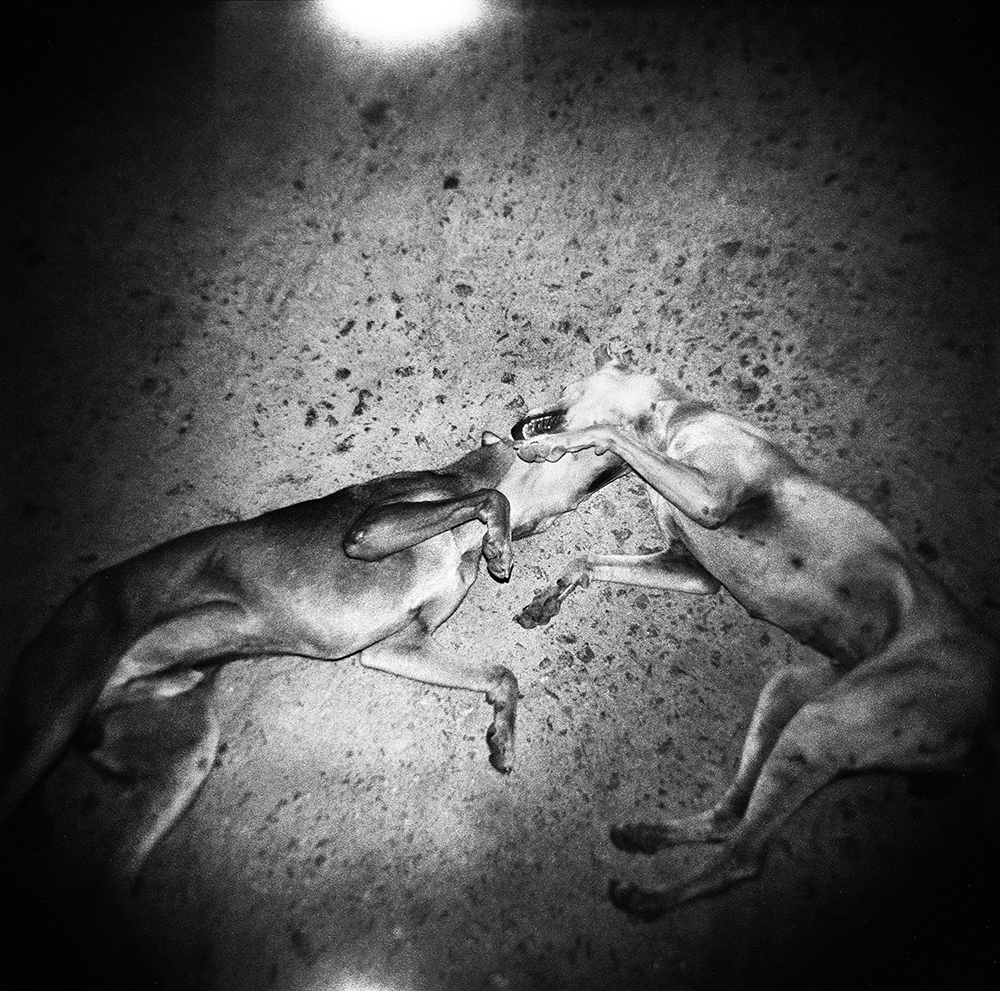“For me photography is an intimate medium. It helps expressing myself but after all, it allows me to be closer to life and people, to look straight into their eyes.”
By Karin Bareman, ASX, September 2015
The sun blazing into the frame, the boy lying on the blanket in the grass, the girl showering after a glorious day on the beach, the young woman challengingly staring into the camera over the back seat of a bus. There is a desperate urgency to Zbierski’s images, a melancholy sense of there being no time like the present, a determined effort to grab the moment by the balls and to never let go. It is an attempt always doomed to fail. There is an ethereal and fleeting quality to Zbierski’s pictures, as if they can vanish from our minds at any moment. The raw and graphic quality of the photographs as well as their grain, blur and bleached out exposure add to that sensation.
Zbierski is not interested in capturing technically perfect photographs. He wants to get to the heart of things, of people. As he describes his approach: “I think that most of my photographs come from my inner tension and attempt to break down fear. For me photography is an intimate medium. It helps expressing myself but after all, it allows me to be closer to life and people, to look straight into their eyes. It is very important to be close enough for two reasons: first, not to be scared and second, to really experience something, even if the relationship is impossible.”
Looking at them I am reminded of photographers such as JH Engström, Anders Petersen and Jacob Aue Sobol, but also of Daido Moriyama an the early William Klein. Asked whether he feels a connection with these artists, Zbierski replies: “Sure, I feel very familiar with their work, although each one of them is very different from the other. The aesthetics of those works is often similar, but what is distinctive for each of them is the impact of real experiences and the reasons for taking pictures. A major objective of my work is to get through to the essence of human emotions, to their purest form with no additions, no gadgets.” Authenticity, not originality, is Zbierski’s goal.
His major series to date, White Elephants (2008-2012), Pass by Me (2010-2012) and Love has to be reinvented (2012-2014), are the result of chance encounters on his ongoing travels through Europe and India. Making thousands of pictures on the road, Zbierski explains how he edits them down to their final form: “I love that part of the work, to be surrounded by hundreds of contact sheets and to look for the images that stay with me in my memory, that speak for others. From these images I build the sequences for the slideshows. First, I create the visual sequence, often together with short video clips. I then look for music to suit the atmosphere of every chapter.” It was during his studies at the State University for Film, Television and Theatre in Łódź that Zbierski made the decision to mainly present his work as slideshows with a cinematic feel. He describes them as photographic unrecorded, imaginary movies.
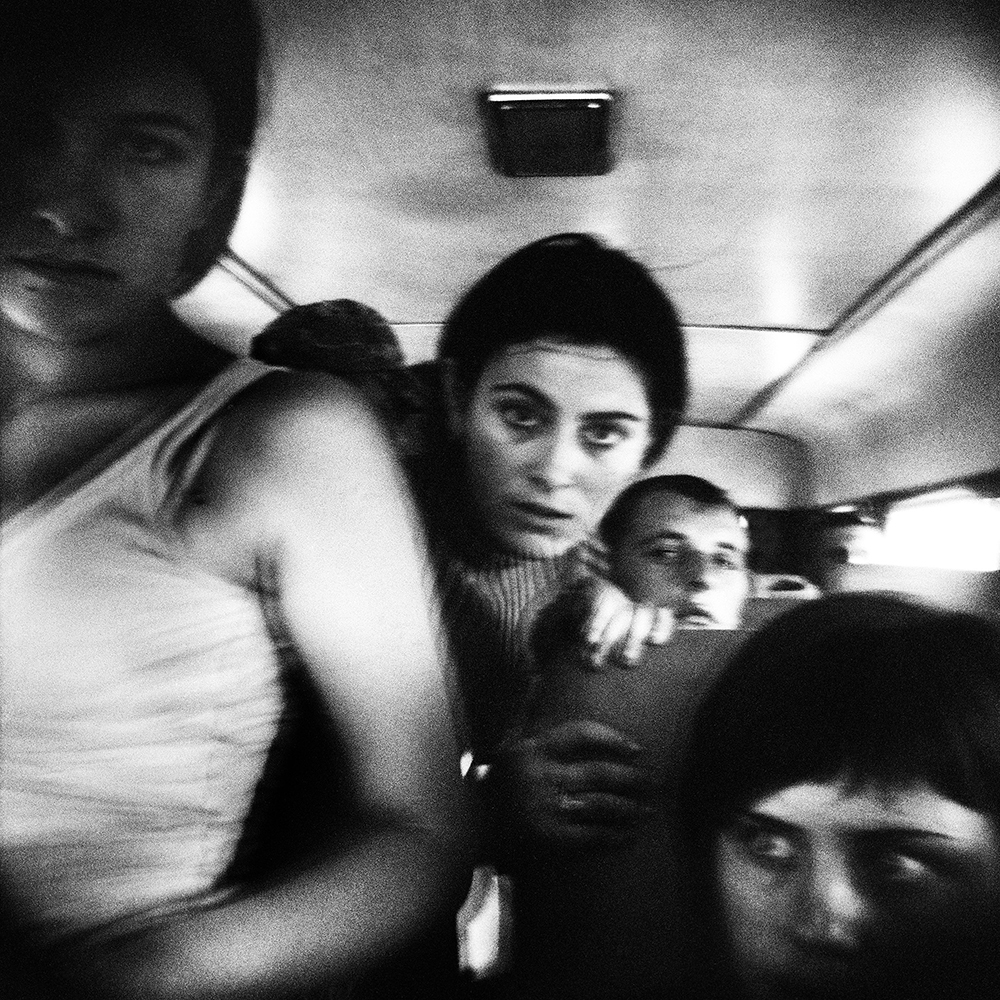
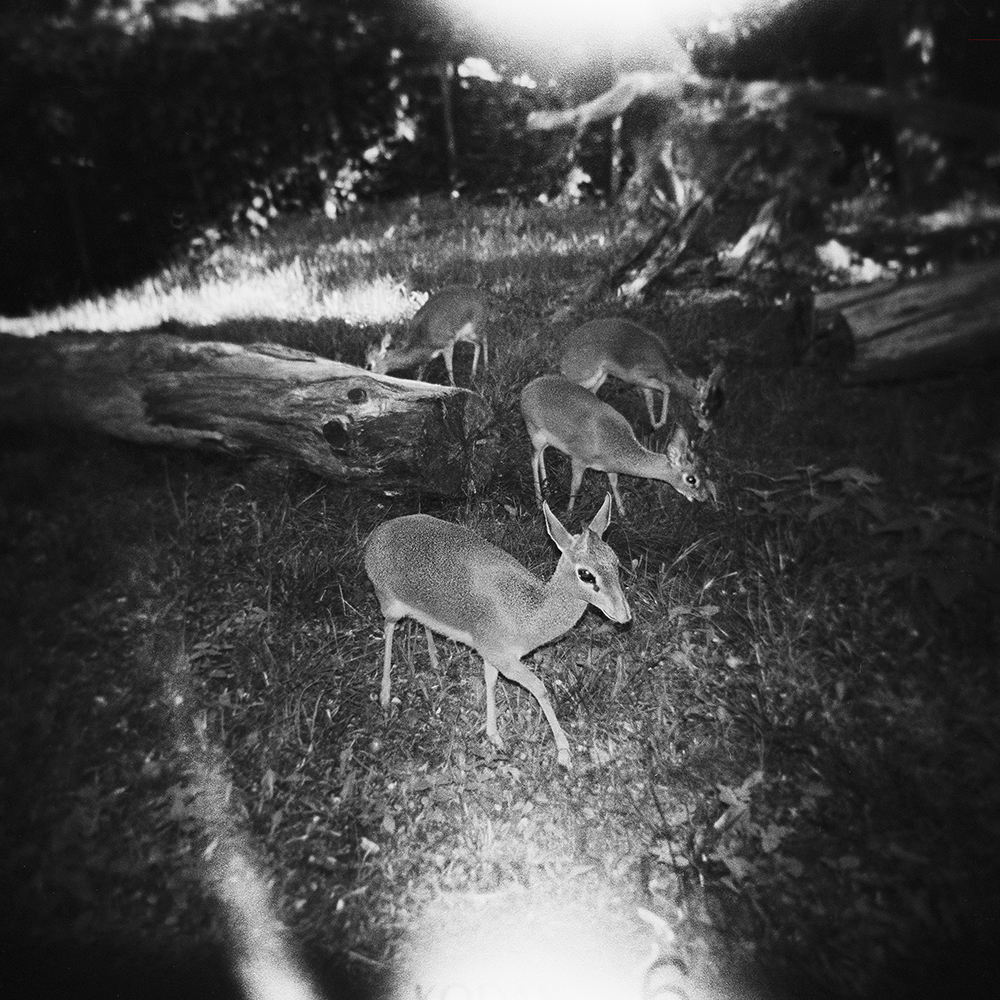
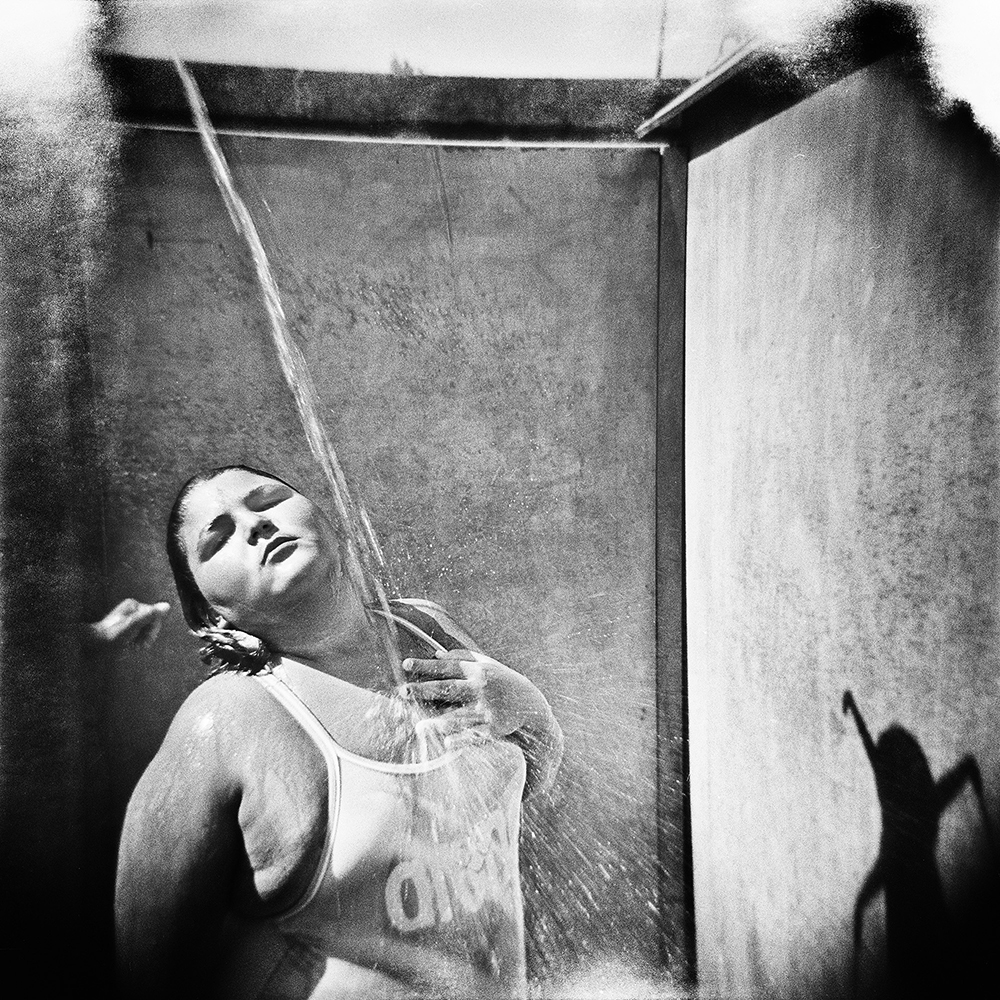
“A major objective of my work is to get through to the essence of human emotions, to their purest form with no additions, no gadgets.”
The three aforementioned series display a natural progression for the photographer. The project presented here, Love has to be reinvented, began in 2012. According to Zbierski: “Its starting point was not a particular image but my personal experience, which changed my view and redefined my opinion on many issues. At the same time, the series is neither my diary nor any personal document […] I build my series out of emotions, which are a biological fact, they are unquestionable. It is a characteristic of my creative work that I start from a personal, private and single experience at the very beginning, and that I come through an image to a part, which is common for all of us, and separate from me.”
It is perhaps for that very reason that Zbierski decided to let Love has to be reinvented end in a very specific way. The photographer chose to finish the series on the occasion of the solar eclipse in Iceland earlier this year. He explains his reasons as follows: “I feel very connected to that small island. I lived there for about eight months and I love this atmosphere of small fisherman villages dominated by nature. I wanted to finish Love has to be reinvented with pictures of a natural occurrence that is equal for every part of the world: the dying sun being reborn, the seasonal passage of time.”
It seems that this end nicely segues into the series Zbierski is currently working on. As he explains: “In my new series Family I concentrate on religious rituals, nature festivals and forms of shamanism that especially in our part of the world seem undervalued. […] My series is exploring the basis from which culture starts to grow, trying to imagine visually the very first human beings and their life by showing the situation which remains almost the same in modern times by rituals passed down from generation to generation.”
Piotr Zbierski (b. 1987) has been nominated for the Deutsche Börse Photography Prize in 2013 and has been awarded the Leica Oscar Barnack Newcomer Award in 2012. His work has been exhibited amongst others by Leica Gallery in Salzburg in 2012 and during Tiff Festival in Wroclaw in 2011 and Rencontres d’Arles in 2012. His work has been published amongst others in GUP magazine and Archive zine. Zbierski is represented by Kehrer Gallery.
http://unseenamsterdam.com/photographers/3956
(All rights reserved. Text @ Karin Bareman and ASX. Images @ Piotr Zbierski.)
